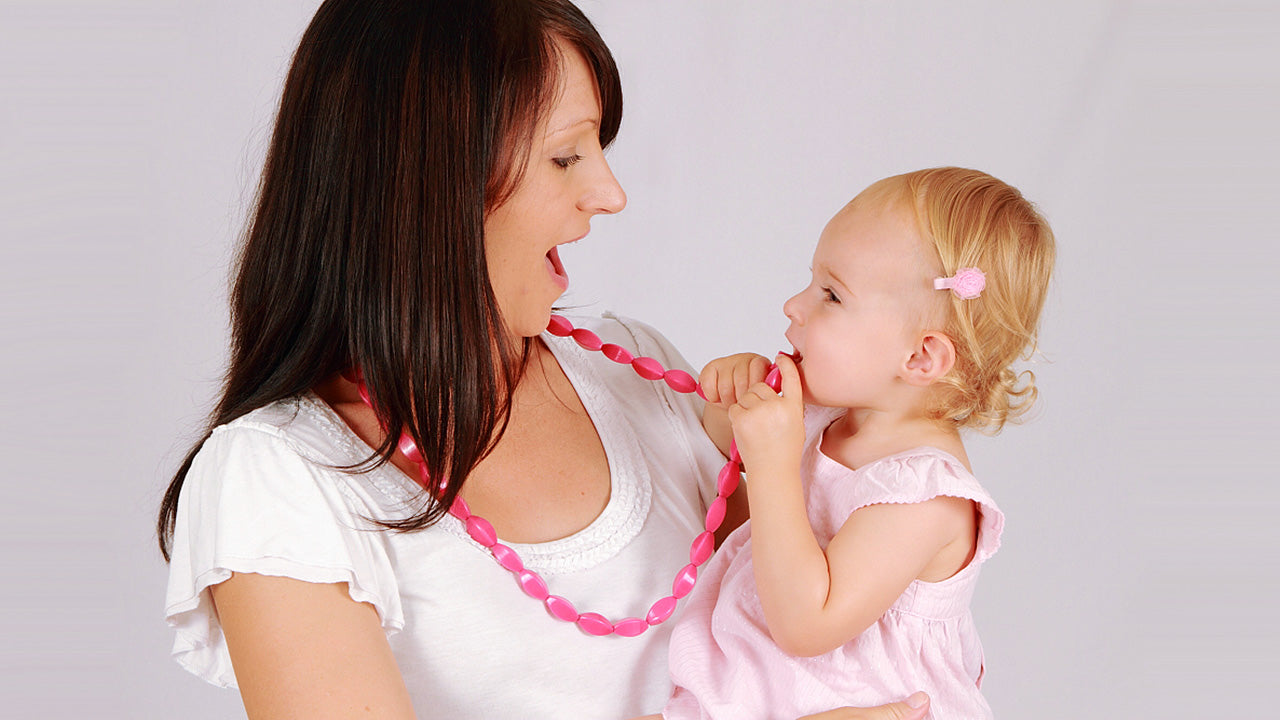
What to Do When Your Baby is Teething
Welcoming a new member of the family into the world is one of life's most cherished moments for any couple. Yet, with the profound joy parenthood brings, there are inevitable phases that present new challenges. Teething is one such milestone that every baby goes through. As a parent, watching your child endure this can be tough, especially when it feels like there's nothing you can do to help. This comprehensive guide is designed to ease the stress and provide you with the knowledge and strategies to support your baby through the teething process.
The Significance of Understanding Teething
Generally speaking, teething is the process by which an infant's teeth sequentially emerge through the gums. Though not every baby's experience is the same, for many, this phase can be uncomfortable. Understanding what teething involves and how best to respond is key to maintaining your baby's well-being during this time.
It's important for parents to recognize teething because it can be mistaken for other illnesses. Teething typically begins around 6 months of age but can start as early as 3 months or as late as 12 months. The first teeth to appear are usually the lower front teeth, or the central incisors, followed by the upper front teeth.
Recognizing the Signs and Symptoms of Teething
Before learning how to soothe a teething baby, it’s important to be able to recognize the symptoms. Teething might lead to:
· Irritability and fussiness
· Excessive drooling
· Swollen, sensitive gums
· A tendency to chew on everything in sight
· Refusal to eat or drink
· Frequent waking or restlessness at night
If your baby is experiencing the teething process, they will likely show some signs of discomfort. Being mindful of these symptoms prepares you to provide the care necessary to help alleviate their discomfort.
Tips for Soothing Teething Discomfort
When it comes to soothing your baby's teething pains, you have several options. It's important to remember that what works for one baby may not work for another.
Gentle Massage and Pressure Techniques
A gentle gum massage with your clean finger can help relieve the pressure from growing teeth. Simply wash your hands, then apply a soft, circular rub along your baby's gum line. Alternatively, gentle brushing with a silicone finger toothbrush, can offer relief. An example of a simple, effective and inexpensive silicone finger toothbrush that we like is Dr. Brown’s™ Silicone Finger Toothbrush: https://www.drbrownsbaby.com/product/silicone-finger-toothbrush-with-case/
Cold and Soothing Teething Toys
Chewing on something cool often provides immediate comfort. Many teething toys are designed to be chilled in the refrigerator (not frozen) for safe, effective relief of painful gums. Choose teething toys specifically made for this purpose and be sure to clean them regularly.
Natural Remedies and Home Remedies
For parents who prefer natural remedies, there are several options. Offer chilled (not frozen) fruits or vegetables in a safe feeder for your baby to gnaw on. Remember to never use remedies that contain alcohol and to watch for any allergies.
Over-the-Counter Options
If your baby is extremely uncomfortable, consider using over-the-counter remedies such as teething gels, which can be applied to the gums for temporary relief. Always follow the product's directions and consult a pediatrician if you have questions or concerns.
Maintaining Oral Hygiene During Teething
It's imperative to keep your baby's mouth clean and free of bacteria, especially during the teething phase when they start to put objects in their mouth. Here's how to maintain good oral care:
Importance of Oral Care During Teething
Teething increases the flow of saliva, which can make your baby's mouth more vulnerable to bacteria, leading to infections. Gentle brushing and cleaning are crucial to prevent this.
Gentle Cleaning Techniques and Products
You don't need to use a toothbrush if your baby is too young. Instead, clean their gums with a soft, damp washcloth. Once teeth start appearing, use a toothbrush with soft bristles and a non-fluoride toothpaste in the size of a grain of rice.
Remember to introduce and maintain oral hygiene habits as soon as the first tooth emerges. This will set the stage for a lifetime of good dental health practices.
Dealing with Sleep Disruptions
To say the least, teething can disturb your baby's sleep and, in turn, yours. Here are some strategies for managing this disruption:
Tips for Managing Sleep Disruptions Caused by Teething
Comfort your baby with a favorite blanket or toy. Try to establish a calming bedtime routine and offer pain relief before bedtime. If your baby wakes, give them a few moments to settle and try patting or comforting without picking them up to encourage self-soothing.
Coping with Irritability and Crying
It's natural for your baby to be extra fussy while teething. Try these strategies to provide comfort:
Strategies for Soothing a Teething Baby
Aside from teething toys, allowing your baby to chew on a chilled washcloth or bib provides relief. Distraction through gentle walks, baby-wearing, or age-appropriate activities can help ease fussiness. Remember, patience and understanding are your best tools.
Foods to Offer and Avoid
Introducing new foods to your baby's diet at the time of teething can be a balancing act. Here's what to consider:
Appropriate Foods for Teething Babies
As your baby begins to wean, offer foods that are easy to chew and/or will gently soothe their gums. This might include chilled purees, soft fruits, and teething biscuits.
Foods to Avoid During Teething
Foods that could possibly cause choking and mouth injuries should be avoided. This includes hard foods, foods that can splinter like nuts and raw carrots, and any small items that could present a choking hazard.
When to Seek Medical Advice
While teething is generally harmless, there are certain signs that may indicate a need for medical attention:
· High fever
· Severe diarrhea
· Rash
· Difficulty breathing or swallowing
If you notice any of these symptoms, seek medical advice as soon as possible.
Conclusion
Teething is an important developmental stage for your baby, but it can be trying for both parent and child. A combination of patience, understanding, and the right strategies can ease the discomfort and help your child—and you—cope with this challenging phase. Remember, it's all part of the journey of watching your little one grow, learn, and blossom into their own unique self.




Leave a comment
This site is protected by hCaptcha and the hCaptcha Privacy Policy and Terms of Service apply.